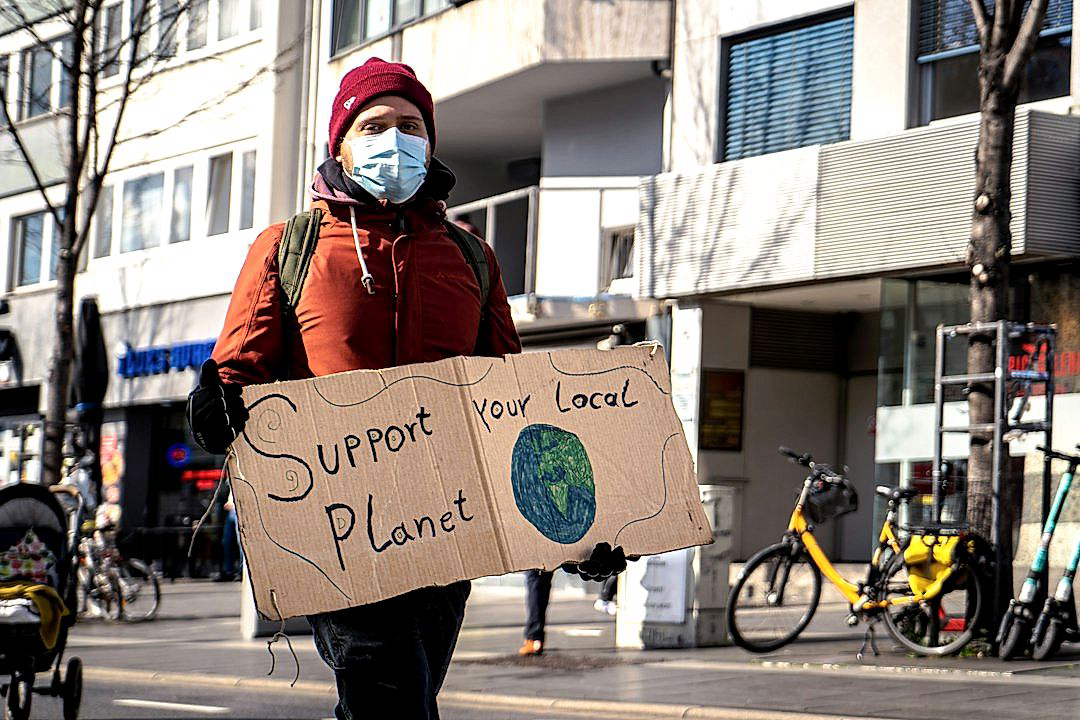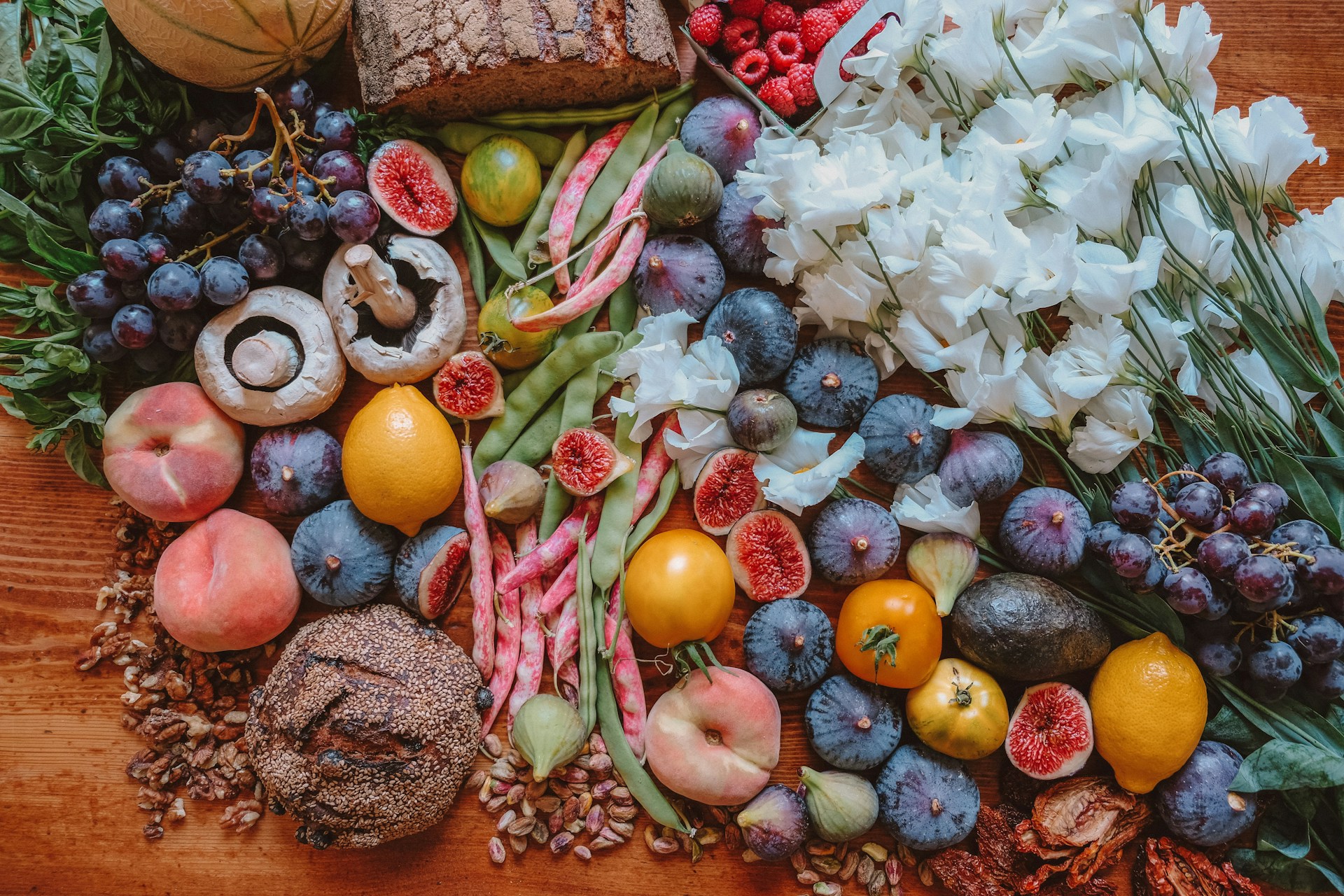As increasing emphasis is being placed on sustainability in all aspects of business, the produce packing industry is no exception.
Practices in this sector have begun to evolve, adapting to the urgent call for environmental stewardship.
The focus on eco-friendly operations is not only beneficial to our environment but is also setting a new standard for industry practices.
This shift not only involves the use of sustainable materials but also optimizing logistics and operations for minimal environmental impact.
In today’s market, those who neglect this critical aspect may risk being left behind.
Accordingly, this article will provide an in-depth analysis of the various eco-friendly practices being implemented by forward-thinking produce packers around the world.
Contents
- Eco-friendly Practices For Produce Packers
- 1. Minimize Packaging, Focus on Sustainable Materials
- 2. Optimize logistics for reduced carbon footprint
- 3. Use eco-friendly, biodegradable packing peanuts.
- 4. Install Solar Panels for Powering Facilities
- 5. Implement Water Recycling Systems in Packing Facilities
- 6. Use Organic Pesticides for Pest Control
- 7. Start a Packing Waste Compost Program
- The Bottom Line
Eco-friendly Practices For Produce Packers
1. Minimize Packaging, Focus on Sustainable Materials
Considering the adverse effects of packing wastes on the environment, it is now more important than ever for businesses, particularly those in the produce industry, to minimize packaging and prioritize the use of sustainable materials.
Traditionally, many produce packers have used a significant amount of plastic and other types of non-biodegradable materials for packaging.
However, there has been a growing awareness and movement towards minimizing packaging and using more eco-friendly materials in recent years.
One major step that produce packers can take towards minimizing packaging is rethinking their packing designs.
By adopting a minimalist approach and cutting down on unnecessary materials, businesses can significantly reduce the amount of packaging waste they produce.
Even small reductions in packaging materials can have a significant impact on reducing a company’s overall carbon footprint.
Nevertheless, it’s not just about minimizing packaging, but also about making a shift towards more sustainable materials.
Sustainable materials such as recycled paper, cardboard, or biodegradable plastics can greatly reduce the environmental impact of packaging waste.
Moreover, by using these kinds of materials, produce packers not only help conserve natural resources but also reduce the accumulation of harmful waste in the environment.
There are also several innovative materials like mycelium-based packaging and edible coatings that are being developed and could revolutionize the packaging industry.
Investing in and supporting the development of these new materials would also showcase the company’s commitment to environmental sustainability and eco-friendly practices.
Furthermore, it would also be of immense benefit to the brand’s reputation, as consumers today are more conscious about the environment and lean towards brands that prioritize sustainability.
However, adopting these practices is not only beneficial for the environment, but they can also be cost-effective in the long run.
Companies can reduce their expenses on purchasing new packing materials by reusing or recycling old ones.
Thus, it is clear that minimizing packaging and focusing on sustainable materials is an essential and beneficial eco-friendly practice for produce packers.
2. Optimize logistics for reduced carbon footprint
One essential area where produce packers can implement eco-friendly practices is in logistics.
By optimizing their logistics operations, companies can significantly reduce their carbon footprint and contribute to an overall healthier environment.
Traditionally, the primary focus in logistics has been solely on cost-effectiveness, often overlooking the environmental impact.
However, with growing awareness and concern over climate change and environmental degradation, there is an increasing push for sustainable practices in all business operations, including logistics.
A promising approach for packers is to centralize their operations, as this can lead to a reduction in the total fuel consumption and subsequently, lower greenhouse gas emissions.
Centralizing operations involve having a single packing facility, located as closely as possible to the supply source and the majority of customers.
This way, the distance covered during transportation is minimized, resulting in less fuel burn and fewer carbon emissions.
Optimized logistics also have potential for monetary savings for produce packers, as efficiency can lead to fewer wasted resources and decreased costs on fuel.
Moreover, produce packers can invest in eco-friendly vehicles for their logistics operations.
Choosing vehicles with advanced fuel efficiency or even electric vehicles would further contribute to reducing the company’s carbon footprint.
Such eco-friendly vehicles are increasingly becoming a practical option as technology advances, providing comparable performance and affordability to conventional vehicles, among other advantages.
Fleet management software, another powerful tool, allows businesses to monitor the routes being used, and analyze this data to streamline operations and enhance efficiency.
Also, partnering with other local businesses for shared logistics operations can result in fewer vehicles on the road,
It also facilitates the maintenance of smaller vehicle fleets, which collectively yields to a significant positive environmental impact.
Lastly, considering alternative modes of transportation that minimize environmental impact, such as rail or water transport, can be beneficial.
Although these steps may require an initial investment in terms of time and resources, in the long term, they will contribute to more sustainable business operations and the well-being of our planet.
3. Use eco-friendly, biodegradable packing peanuts.
Packing peanuts may seem like a minor detail in the grand scheme of sustainability, but their potential environmental impact is significant. Biodegradable packing peanuts are a simple yet effective solution, made from both sustainable and compostable materials.
Traditional packing peanuts are made from polystyrene, a type of plastic. These peanuts can take hundreds, if not thousands, of years to fully decompose. The extensive lifespan of this packaging material means that it continues to pollute our environment for generations.
On the other hand, eco-friendly packing peanuts are designed to break down naturally. When disposed of, they degrade in a considerably shorter amount of time and with far less environmental impact. The use of these peanuts is a small shift that can make a difference in the overall sustainability of packaging practices.
Produce packers can significantly reduce their carbon footprint by replacing polystyrene peanuts with eco-friendly alternatives. These packing peanuts are less harmful to the environment and align with modern consumers’ increasing demand for sustainable packaging.
One of the benefits of these eco-friendly peanuts is their reduced energy requirement during manufacturing. Recycled materials such as cornstarch and paper are often used instead of petroleum-based products. This results in a lower carbon footprint in the production process itself.
Another advantage of these peanuts over traditional ones is their capacity to dissolve in water. This ability means that they can be recycled more effectively, reducing waste to landfills. Consumers can even compost them at home, contributing to a circular economy.
Despite their sustainable nature, these peanuts perform just as well as traditional ones in terms of protecting goods during transit. They provide the necessary cushioning and shock absorption to prevent damage to the produce. So, businesses don’t have to compromise on packaging performance when adopting this greener alternative.
Businesses considering this switch should also weigh in the cost factor. Although biodegradable peanuts tend to be more expensive than their non-biodegradable counterparts currently, the long-term savings are worth it. The shift towards sustainable packaging material can help position a company as an environmentally responsible entity, increasing its appeal to eco-conscious consumers.
The application of eco-friendly packing peanuts doesn’t just end with produce packaging. They can be used across a wide range of industries – from general shipping to electronics and household goods. Their versatility further amplifies the positive impact on the environment that can be achieved through their use.
Implementation of these biodegradable packing peanuts also encourages other companies in the supply chain to adopt sustainable practices. It sends a proactive message about the company’s commitment towards environmental sustainability.
By opting for biodegradable packing peanuts, produce packers can take a significant step towards minimizing their environmental footprint. It’s an action that makes both business and ecological sense, demonstrating a real-world commitment to sustainable business practices.
This simple yet effective change to biodegradable packing peanuts is a noteworthy example of how small adjustments can have a big impact on environmental sustainability. It’s a change that lays the foundation for a more sustainable operation and a healthier planet.
4. Install Solar Panels for Powering Facilities
As produce packers, we can significantly reduce our environmental impact by turning to renewable energy sources to power our facilities, and one of the most viable options is solar energy.
Installing solar panels in our facilities not only helps to reduce greenhouse gas emissions associated with electricity generation but it also saves considerably on energy bills.
Produce packing facilities are often ideally suited for solar installations because they typically have large roof surfaces exposed to the sun.
The sun is an inexhaustible resource. By harnessing it through solar panels, we can support our operations while contributing to a greener planet.
In some regions, switching to solar energy might also make produce packers eligible for grants or tax benefits which can offset the initial installation costs.
Solar panels offer the potential for a double benefit: reducing a facility’s carbon footprint while also reducing operational costs.
When properly maintained, solar panels have a long lifespan, often exceeding 25 years, meaning significant cost savings over time.
The energy produced by solar panels is reliable and relatively predictable, providing a level of energy security that traditional power sources may not offer.
Furthermore, the advent of advanced battery storage technologies also means that any excess energy generated during the day can be stored for use during nighttime hours or periods of low sunlight.
It’s worth noting too that solar panel installations can add value to the business in the eyes of eco-conscious consumers, who increasingly prefer supporting companies that take renewable energy seriously.
Adopting renewable energy sources like solar power is a testament to a company’s commitment to sustainability and an important part of establishing a company’s eco-friendly credentials.
While the transition to solar energy does require an upfront investment, the return on that investment is substantial – not only in terms of cost savings but also the environmental benefits.
Moreover, available technology and expertise mean that transitioning to solar energy has become significantly easier and more affordable than it was even a few years ago.
Overall, by implementing solar panel systems, produce packers can greatly contribute to the global effort to mitigate the harmful effects of climate change.
In conclusion, solar energy offers produce packers a practical and ethical means of power that is as good for the bottom line as it is for the earth.
5. Implement Water Recycling Systems in Packing Facilities
As part of the eco-friendly practices essential for produce packers, the implementation of water recycling systems in packing facilities is a necessary step.
This involves the reuse and recycling of water that has been previously utilized within the packing processes.
By implementing this system, companies can remarkably reduce their consumption of fresh water sources, making their operations more sustainable.
Advanced water recycling technologies today can treat the wastewater to a level that it becomes safe and useful again.
This can in turn have a significant positive impact on the environment by conserving water resources and reducing pollution caused by waste discharge.
Besides the reduction in the levels of water consumption, this practice also results in cost savings in the long term as the dependency on fresh water supply is mitigated.
Produce packers can use the recycled water for multiple non-potable uses in their facilities such as irrigation, cleaning, and cooling.
A point to note is that water used for washing the produce during packing can be easily recycled after treatment and filtration.
While some may argue that the initial investment for installing such systems may be high, it is crucial to understand that the return on investment justifies this cost in the long run.
Moreover, the implementation of such systems can help packing facilities to achieve certain local or national sustainability and water management goals.
Many jurisdictions provide tax reductions and grants as monetary incentives to businesses that implement such eco-friendly and sustainable practices.
Waterwise Technology Ltd, for example, has successfully implemented a water recycling system at their packing facility, resulting in an annual water savings of about 85%.
Therefore, the implementation of water recycling systems in packing facilities is not only essential from an environmental perspective but also from a business and economic outlook.
With the increasing awareness on environmental issues, more consumers are becoming conscious about the sustainability practices followed by the companies they buy from.
This means that by adopting such practices, produce packers also stand a chance to enhance their brand reputation and attract a larger customer base.
By adopting water recycling systems, produce packers can therefore play a key role in promoting sustainable business practices and contributing towards a healthier planet.
6. Use Organic Pesticides for Pest Control
Increasingly, produce packers are leveraging organic pesticides as a critical component of pest control, focusing on sustainability and enhanced ecological balance.
Organic pesticides are derived from naturally occurring sources, unlike synthetic pesticides, which can have adverse effects on the environment and human health.
The use of organic pesticides ensures the safety and integrity of your produce from farm to plate.
These pesticides, often plant-based, are biodegradable and decompose naturally without leaving harmful residue behind.
Integration of organic pesticides can boost the ecosystem’s resilience, providing long-term benefits that extend beyond immediate pest control.
The process of applying organic pesticides is also significant, focusing on accurate timing and precise placement to minimize environmental impact.
Another benefit is the enhanced soil fertility, as organic pesticides enrich the soil with their natural components,
This practice is fully compatible with other environmentally-friendly techniques like crop rotation and the use of biodiversity to discourage pests.
As you transition to organic pesticides, it’s crucial to educate employees on their use and the benefits associated.
Additionally, consumers are drawn to products created with minimal environmental harm, making organic pest control a crucial selling point.
Moreover, organic pesticides are generally more cost-effective in the long run, since they improve the yield and quality of your produce without causing ecological damage.
The use of organic pesticides aligns well with other eco-friendly initiatives like using renewable energy sources and recycling.
National and international regulations are also increasingly promoting the use of organic over synthetic pesticides.
This shift towards organic pesticides not only benefits the environment but also supports the livelihoods of farmers by creating a sustainable cycle of productivity.
Through the use of organic pesticides, produce packers play a pivotal role in promoting a more sustainable future for agriculture.
7. Start a Packing Waste Compost Program
As a produce packer looking to incorporate eco-friendly practices into your operations, starting a packing waste compost program can be a significant step forward.
This initiative not only aligns with the worldwide push for sustainable development, but also redefines waste management in your facility.
Adopting a composting program means you’ll be transforming organic waste into a valuable resource that is beneficial to the environment.
The first step towards this is to identify the types of waste that your facility produces which can be composted.
Among the many types of waste to compost are leftover fruits and vegetables, non-recyclable paper, coffee grounds, eggshells, and even yard trimmings.
Once identified, the proper composting techniques such as aerobic or anaerobic composting should be put into place.
This involves combining the organic waste with other materials necessary for composting like brown and green wastes to allow for efficient decomposition.
A successful composting process produces compost which is a rich soil conditioner, ideal for gardening and farming activities.
Where necessary, you should partner with local farmers or gardening enthusiasts in your area to make use of the compost.
This goes a long way to promote community sustainability and at the same time, reduce the amount of waste that ends up in landfills.
Not only does this lessen your company’s impact on the environment, it also works in the favor of your business’s public image as more consumers are leaning towards supporting eco-friendly businesses.
Remember, implementing a successful composting program is not a one-and-done process.
It requires regular monitoring and maintenance to ensure that the composting piles are at the right temperature and have the proper moisture and oxygen levels for decomposition.
Assessing the effectiveness of your composting program periodically is crucial in identifying and fixing any challenges encountered during the process.
Last but not least, educating your staff about the importance of composting and how to effectively participate in the program is vital for the project’s long-term success.
Through this, your business can greatly contribute to sustainable development while also gaining competitive advantage in the increasingly eco-conscious market.
The Bottom Line
Sentences long.
The adoption of eco-friendly practices in packging can significantly impact diminishing our carbon footprint.
Implementing sustainable measures such as the use of biodegradable packing materials, optimizing logistics for greenhouse gas reduction, harnessing renewable energy for powering facilities, and recycling water are proactive steps towards a greener environment.
Incorporating organic alternatives for pest-control and initiating a compost program for packing waste also contributes to the larger goal of sustainability.
It is not just a responsibility but an urgent imperative that we transform our packaging processes for the future of our planet.




